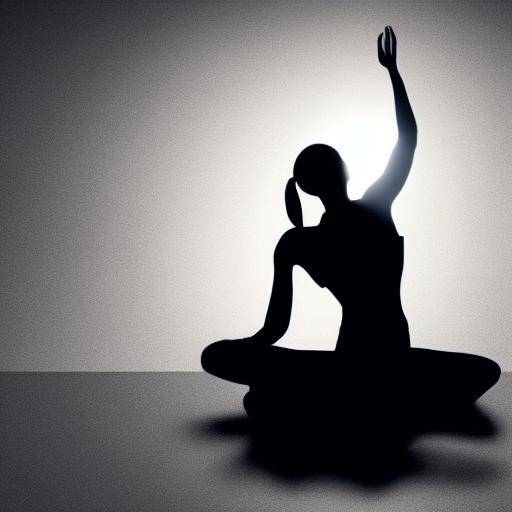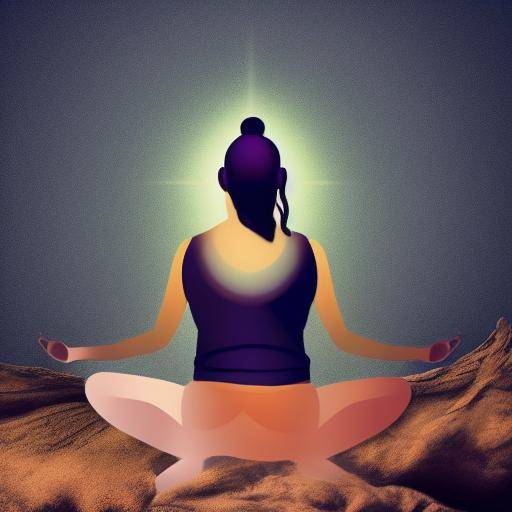
Meditation has been practiced for centuries as a tool to improve mental and emotional health. At present, their popularity has grown significantly, as more and more people seek ways to reduce stress, improve their approach and find a greater balance in their lives. Mental flexibility, the ability to adapt to changing situations and manage stress effectively, is essential in the current world. In this article, we will explore how meditation can be used to develop mental flexibility and promote mental well-being in general.
Introduction
The practice of meditation has spread around the world, attracting people from various fields, from busy executives to high-performance students and athletes. The ability of meditation to soothe the mind, improve concentration and promote mental clarity makes it a powerful tool to develop mental flexibility. In this article, we will explore in depth how meditation can help us manage stress, adapt to the challenges of daily life and cultivate a more positive attitude.
History and Background
Meditation has its roots in ancient oriental traditions, where it has been practiced for thousands of years as a means to achieve spiritual enlightenment and inner peace. Throughout history, diverse cultures have developed their own forms of meditation, each with its unique approach and its particular benefits. Meditation has evolved over time, adapting to the changing needs of society and expanding globally.
Detailed Analysis
The regular practice of meditation has shown a wide range of benefits both mentally and physically. Scientific studies have confirmed that meditation can reduce stress, improve memory, increase creativity and promote emotional resilience. This millenary practice has proven to be effective in treating disorders related to anxiety, depression and chronic stress.
Meditation has also become a valuable tool in corporate environments, where it is used to improve job performance, increase productivity and foster a positive working climate. In addition, meditation has been integrated in the field of psychology and medicine, where it is used as a complement in the treatment of various mental health conditions.
Comprehensive review
In considering meditation as a tool for the development of mental flexibility, it is crucial to understand how this practice can be applied in everyday life. Through specific meditation exercises, it is possible to train the mind to adapt more effectively to stressful situations, promote inner calm and foster a more positive attitude. Various meditation techniques will be analyzed, from mindfulness meditation to moving meditation, to highlight how each approach can contribute to the development of mental flexibility.
Comparative analysis
While meditation focuses on the cultivation of inner calm and mental clarity, mental flexibility implies the ability to adapt to the changing demands of life. Through concrete examples, we will compare how the practice of meditation can influence a person's ability to face challenges, solve problems and maintain composure in stressful situations. By understanding the intersection between meditation and mental flexibility, we can better appreciate the positive impact that meditation can have on our emotional and mental resistance.
Practical Tips and Accessible Tips
For those who wish to incorporate meditation into their lives as a way of developing mental flexibility, we will provide practical advice and concrete actions. From the creation of a quiet space for meditation to the exploration of different types of meditation, we will provide detailed guidance on how to begin and maintain an effective meditation practice.
##Conclusion
In short, meditation offers a proven and effective approach to developing mental flexibility and promoting mental well-being in general. Through its capacity to promote calm, clarity and resilience, meditation has become an invaluable tool to address the challenges of daily life. By integrating meditation into our daily routines, we can improve our ability to adapt to changing circumstances, manage stress and cultivate a more balanced and positive attitude.
Frequently asked questions
What is mental flexibility and why is it important for emotional well-being?
Mental flexibility refers to the ability to adapt to changing situations, handle stress effectively and maintain a positive attitude. It is important for emotional well-being because it allows us to face challenges with resilience and maintain mental clarity even in stressful circumstances.
What are some meditation exercises that can help develop mental flexibility?
Mindfulness meditation, moving meditation and compassion meditation are exercises that can help develop mental flexibility. These practices foster inner calm, adaptive capacity and emotional resilience.
How long is it needed to develop mental flexibility through meditation?
The time needed to develop mental flexibility through meditation can vary by person. However, regular meditation practice, even in short daily sessions, can lead to significant improvements in adaptation capacity and stress management over time.
In what working context can meditation practice be beneficial to develop mental flexibility?
Meditation practice can benefit professionals in working environments by reducing stress, improving decision-making and promoting resilience to everyday challenges. The benefits of meditation can contribute to a more positive working environment and to greater emotional well-being at work.
How can meditation influence the ability to face challenging situations in everyday life?
Meditation can influence the ability to face challenging situations by promoting inner calm, mental clarity and adaptive capacity. By training the mind through meditation, people can develop greater emotional resilience and a more positive attitude towards the challenges they face.
Can meditation be beneficial for relief of stress and anxiety?
Yes, many studies have shown that meditation can be beneficial for the relief of stress and anxiety. The regular practice of meditation has proven to reduce stress levels, promote relaxation and improve anxiety management in various populations.
With this complete guide on how to use meditation to develop mental flexibility, we hope to have provided a clear and practical view on the subject. The combination of the ancestral wisdom of meditation with the modern demands of maintaining mental flexibility can lead to a more balanced, resilient and satisfying life.






















































